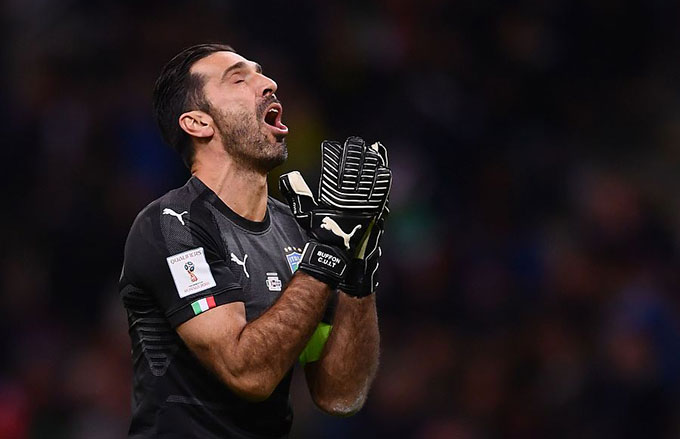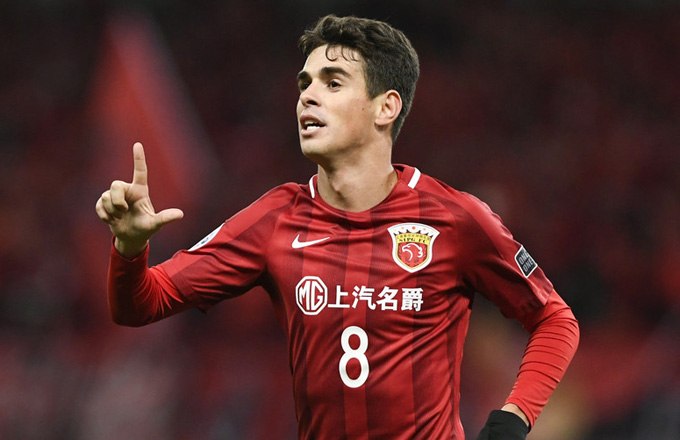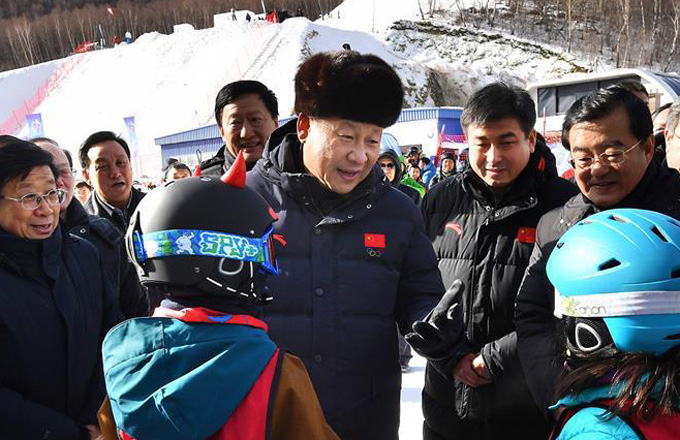FIFA fixated on China market
Big TV deal underlines governing body's pledge to develop game here
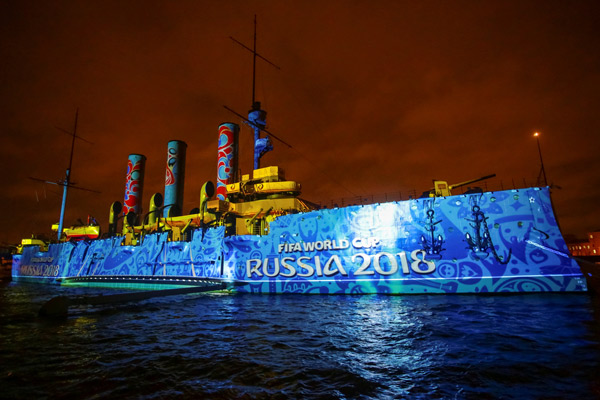 |
|
FIFA World Cup sign is projected on the cruiser Aurora during a light show in St. Petersburg, Russia, November 4, 2017. [Photo/Agencies] |
China Central Television's recent acquisition of exclusive rights for the 2018 and 2022 World Cups is more evidence of the game's growing popularity here - and FIFA knows it.
"It's no secret that China has a key role in our strategy to develop football around the globe. It must play," said FIFA secretary-general Fatma Samoura at the recent announcement of the CCTV-FIFA partnership extension in Beijing.
"How could we even dream of achieving this without focusing on 1.4 billion fans and fans-to-be of the beautiful game in China?"
FIFA has set a target of involving 60 percent of the world's population in soccer through 2026, and developing the grassroots game here forms a key part of that strategy.
"China is only starting to unseal its potential and its power to further increase the game's popularity. This is a beautiful blossoming process," said Samoura.
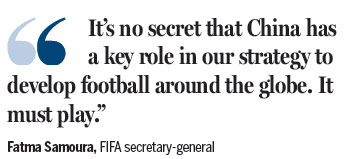
China unveiled an ambitious central government-approved soccer development plan in early 2015, aimed at turning the national team into a credible World Cup contender by 2050.
As part of the campaign, soccer-focused physical education programs have been introduced to nearly 20,000 schools across the country and there has been massive investment in the professional ranks - evidenced by the estimated $410 million spent by Chinese Super League clubs during the 2016-17 winter transfer window.
During his visit to China in June, FIFA president Gianni Infantino praised the country's soccer reforms.
Last October, FIFA backed up that sentiment with cold hard cash, allocating $4 billion to its 211 member associations through 2026.
The funding is at the core of 'FIFA 2.0: The Vision for the Future' - the global governing body's blueprint for grow-ing the game over the next decade.
"China is a beneficiary from this funding," said Samoura. "We are supporting China's national strategy in developing football at the club and school levels. We are also trying, through our technical division, to support the Chinese Football Association."
Chinese companies are also kicking in. Last March, real estate developer Dalian Wanda Group signed a sponsorship deal with FIFA through the 2030 World Cup, worth a reported $450 million.
That followed Alibaba Group's 2015 deal to become a sponsor of the Club World Cup through 2022.
Peng Jianming, deputy editor-in-chief of CCTV, said broadcasting FIFA's elite competitions free of charge in China through 2022 was crucial to the sport's growth.
"Free broadcasting will help the game reach out to a bigger audience with the lowest possible access," said Peng.
"We will stick to the free distribution model and high-quality presentation."
With the agreement, CCTV has acquired all media rights across all platforms for live, delayed and highlight broadcasts of all major tournaments, including the 2019 Women's World Cup and 2021 Confederations Cup.
"Our close partnership with CCTV, reinforced by this new two-tournament agreement, will make FIFA's competition even more accessible to the Chinese audience and support the continuing development of Chinese football," said Samoura.
sunxiaochen@chinadaily.com.cn




